Sensory Play is extremely important in Child Development. It helps unlock the child’s growth through touch, smell, sight, sound, and taste.
Sensory play is a cornerstone of child development, offering a hands-on approach to learning that engages all five senses. This interactive method of exploration not only satisfies a child's natural curiosity but also builds essential skills across cognitive, physical, social, and emotional domains. By incorporating sensory play into daily routines, parents and caregivers can provide children with invaluable opportunities for growth and learning.
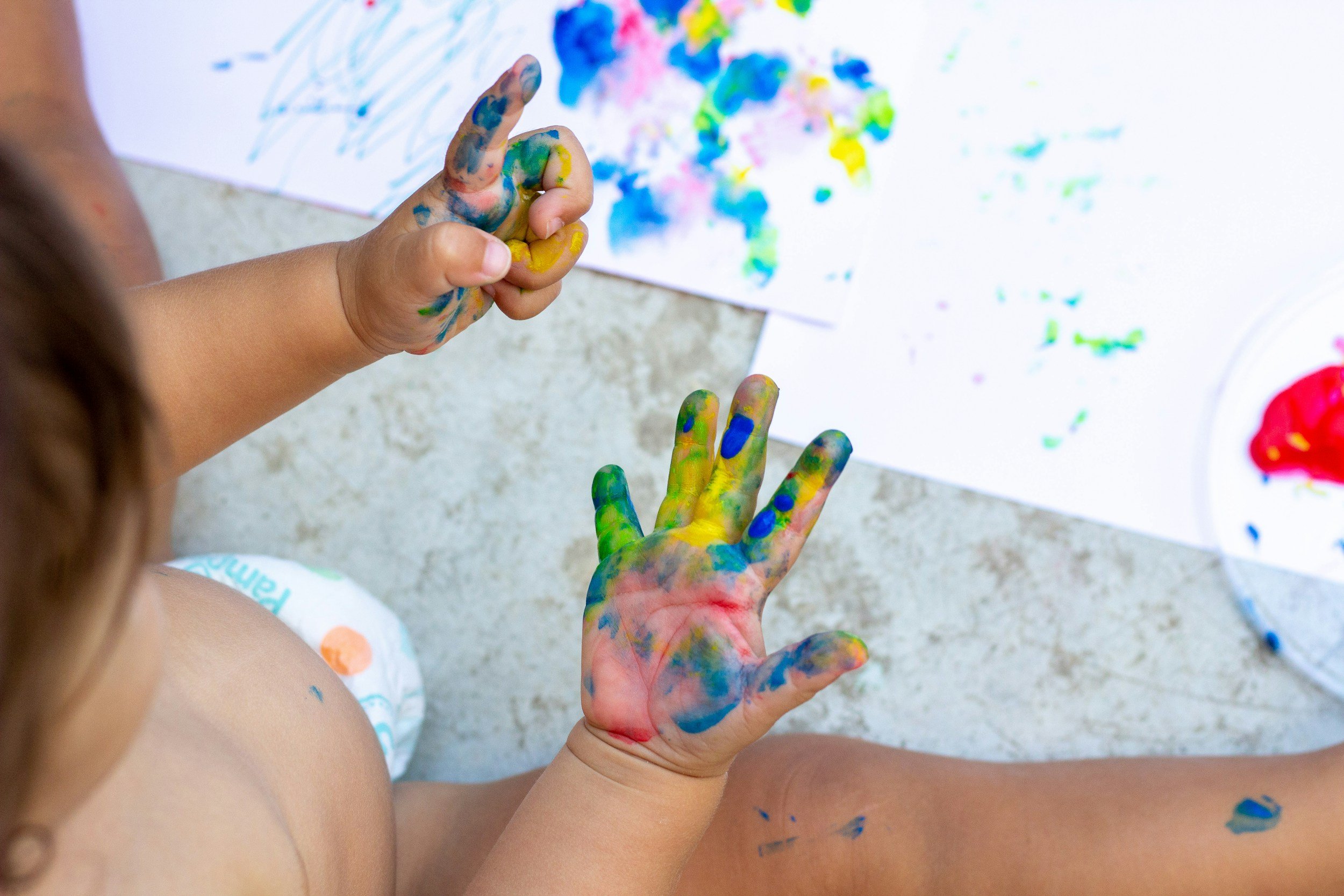
Benefits of Sensory Play
Cognitive Development
Sensory play acts as a catalyst for brain development, fostering critical thinking, problem-solving abilities, and creativity. When children engage in activities like manipulating playdough or exploring a sensory bin filled with different materials, they're actively forming neural connections. These experiences help them understand concepts like cause and effect, spatial relationships, and basic scientific principles. For instance, as a child pours water from one container to another, they're learning about volume and flow, even if they can't articulate these concepts yet.
Physical Skills Enhancement
Both fine and gross motor skills benefit greatly from sensory play. Fine motor skills, which involve the small muscles in the hands and fingers, are honed through activities like finger painting, molding clay, or picking up small objects from a sensory bin. These skills are crucial for future tasks such as writing, buttoning clothes, and using utensils. Gross motor skills, involving larger muscle groups, are developed through activities like jumping in leaves, balancing on textured surfaces, or swinging. Such activities improve coordination, balance, and overall body awareness.
Language Development
Sensory play provides a rich context for language acquisition and expansion. As children explore different sensory experiences, they naturally acquire new vocabulary to describe what they're seeing, feeling, hearing, smelling, and tasting. Adults can further enhance this by introducing descriptive words and encouraging children to verbalize their experiences. This not only builds vocabulary but also improves communication skills and language comprehension.
Social and Emotional Growth
When children engage in sensory play with others, they learn valuable social skills such as sharing, turn-taking, and cooperation. Additionally, sensory experiences can have a calming effect on children, helping them manage their emotions and reduce stress. For children who struggle with sensory processing or have special needs, carefully designed sensory activities can provide comfort and help them better integrate sensory information from their environment.
Creativity and Imagination
Sensory play is a breeding ground for creativity and imaginative thinking. When children are given open-ended materials to explore, they're free to create their own narratives and solutions. This type of play encourages out-of-the-box thinking and problem-solving, skills that are valuable in all areas of life.
Age-Appropriate Sensory Play Activities
Infants (0-12 months)
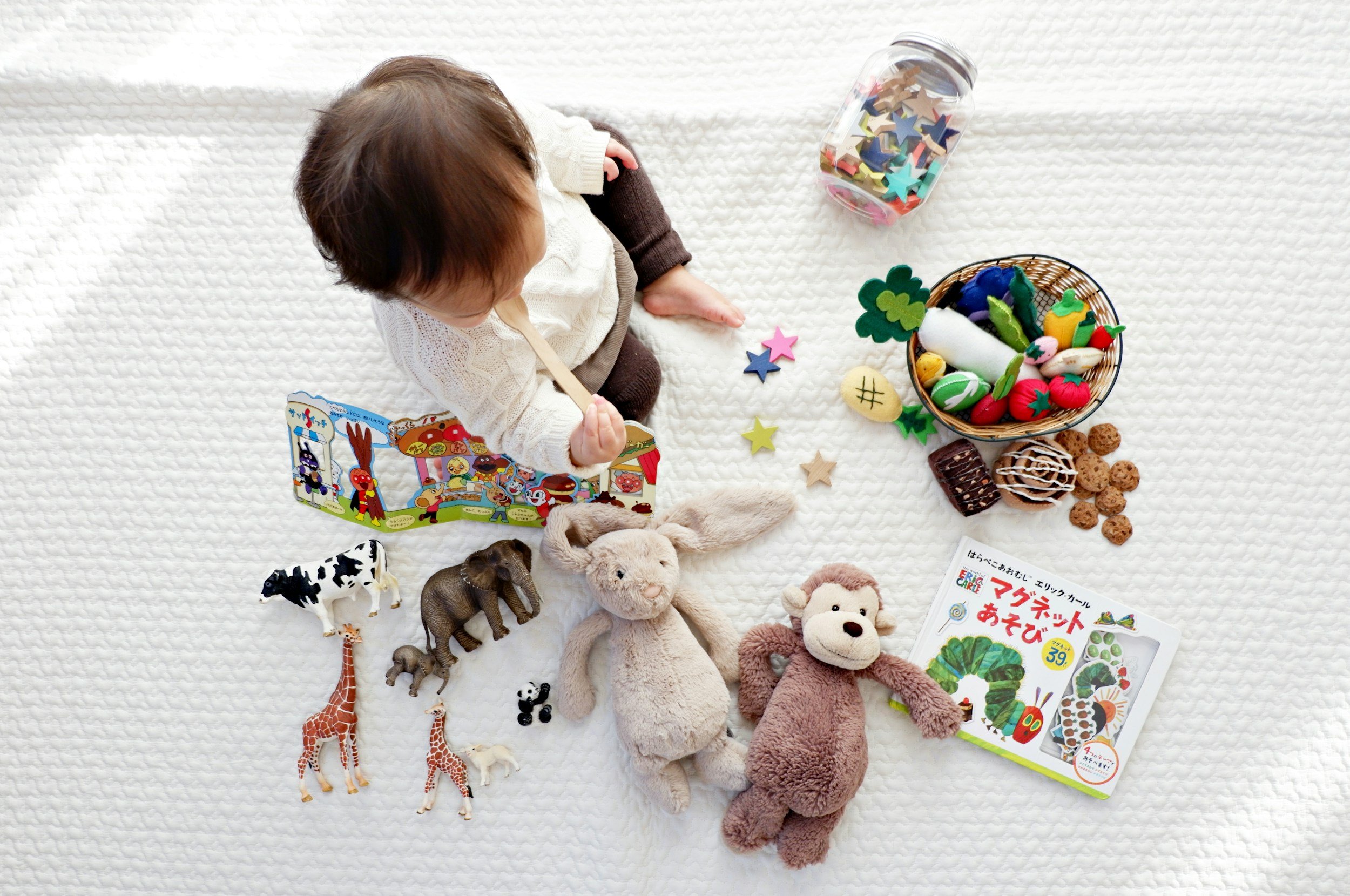
For the youngest learners, sensory play focuses on introducing a variety of safe textures, sounds, and visual stimuli:
-
-
Texture exploration: Offer soft fabrics, crinkly materials, and textured balls or toys for tactile stimulation.
-
Sound discovery: Introduce rattles, simple musical instruments, and sound-making toys to engage auditory senses.
-
Visual engagement: Use sensory bottles filled with colorful objects, high-contrast patterns, and safe mirrors to captivate visual attention.
-
For more tools to support your child's growth and development, explore our Infant Milestone Calculator.
-
Toddlers (1-3 years)
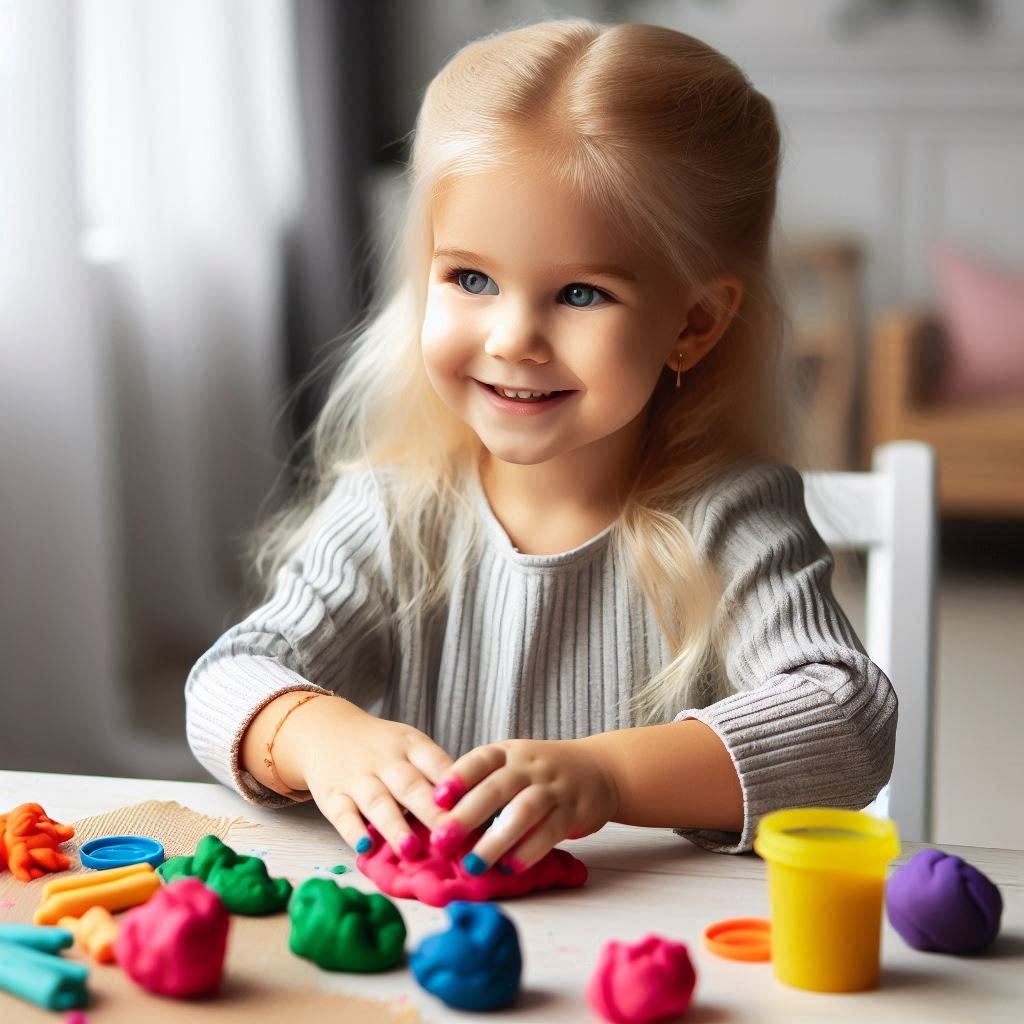
As children grow, their sensory play can become more complex and interactive:
-
-
Playdough manipulation: Encourage kneading, rolling, and sculpting to develop fine motor skills and creativity.
-
Finger painting: Use edible finger paints to promote artistic expression and sensory exploration.
-
Sensory bins: Create bins filled with materials like rice, beans, kinetic sand, or water beads for scooping, pouring, and tactile exploration.
-
Outdoor exploration: Facilitate digging in dirt, water play, and nature walks to engage multiple senses simultaneously.
-
For more tools to support your child's growth and development, explore our Toddler Milestone Calculator.
-
Big Kids (4-6 years)
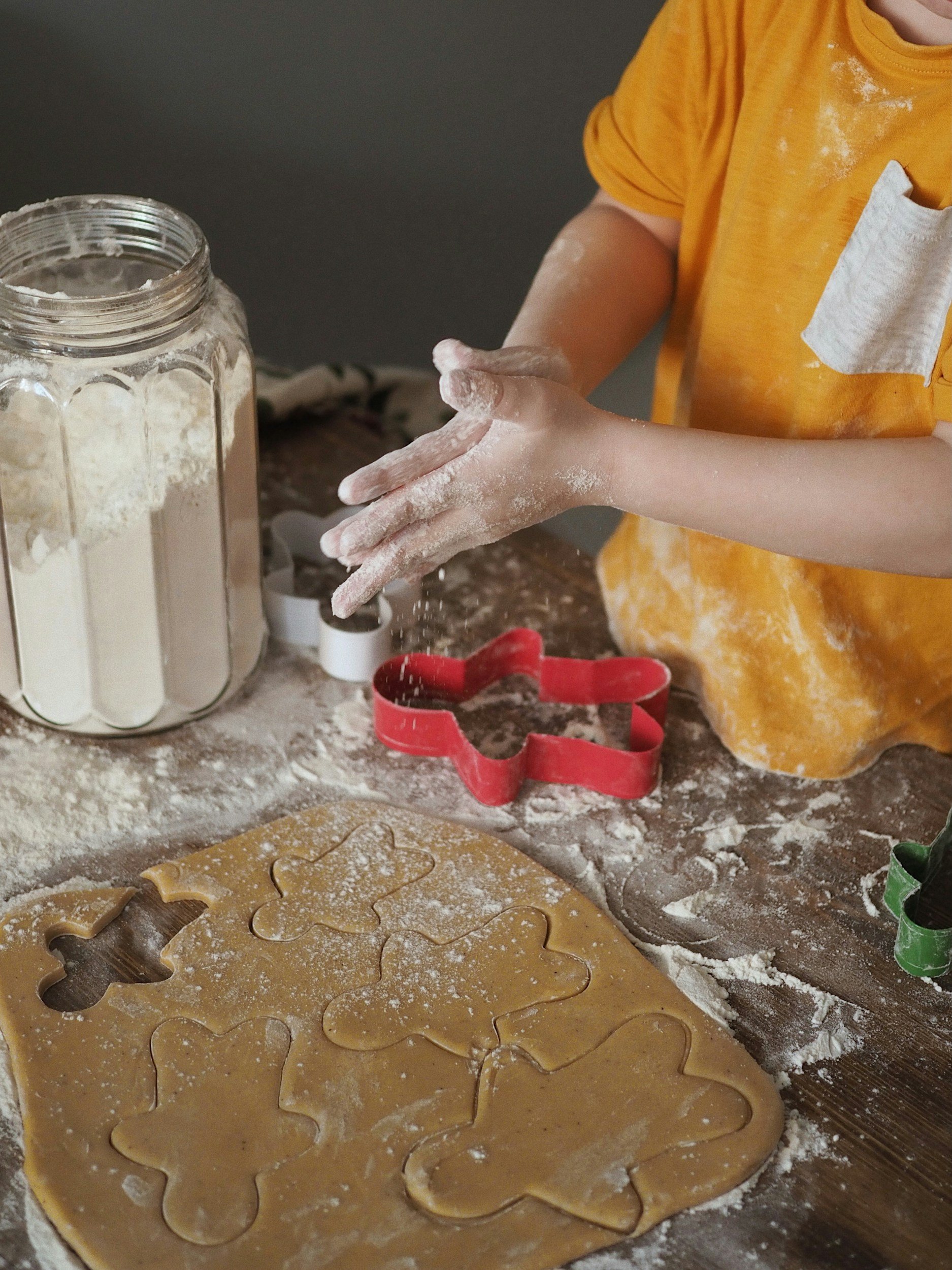
Older children can engage in more sophisticated sensory experiences:
-
-
Sensory trails: Design paths with varying textures (grass, sand, pebbles) for tactile foot exploration.
-
Sensory gardens: Plant aromatic herbs, colorful flowers, and edible vegetables to create a multi-sensory outdoor experience.
-
Culinary exploration: Involve children in simple cooking or baking activities, allowing them to smell, taste, and touch ingredients safely.
-
Advanced sensory art: Introduce materials like shaving cream, salt dough, or cloud dough for more complex sculpting and artistic creation.
-
Building Blocks: A Foundation for Learning
Building blocks are one of the most versatile and beneficial toys for promoting child development. These simple objects offer a wealth of opportunities for learning and growth across multiple domains.
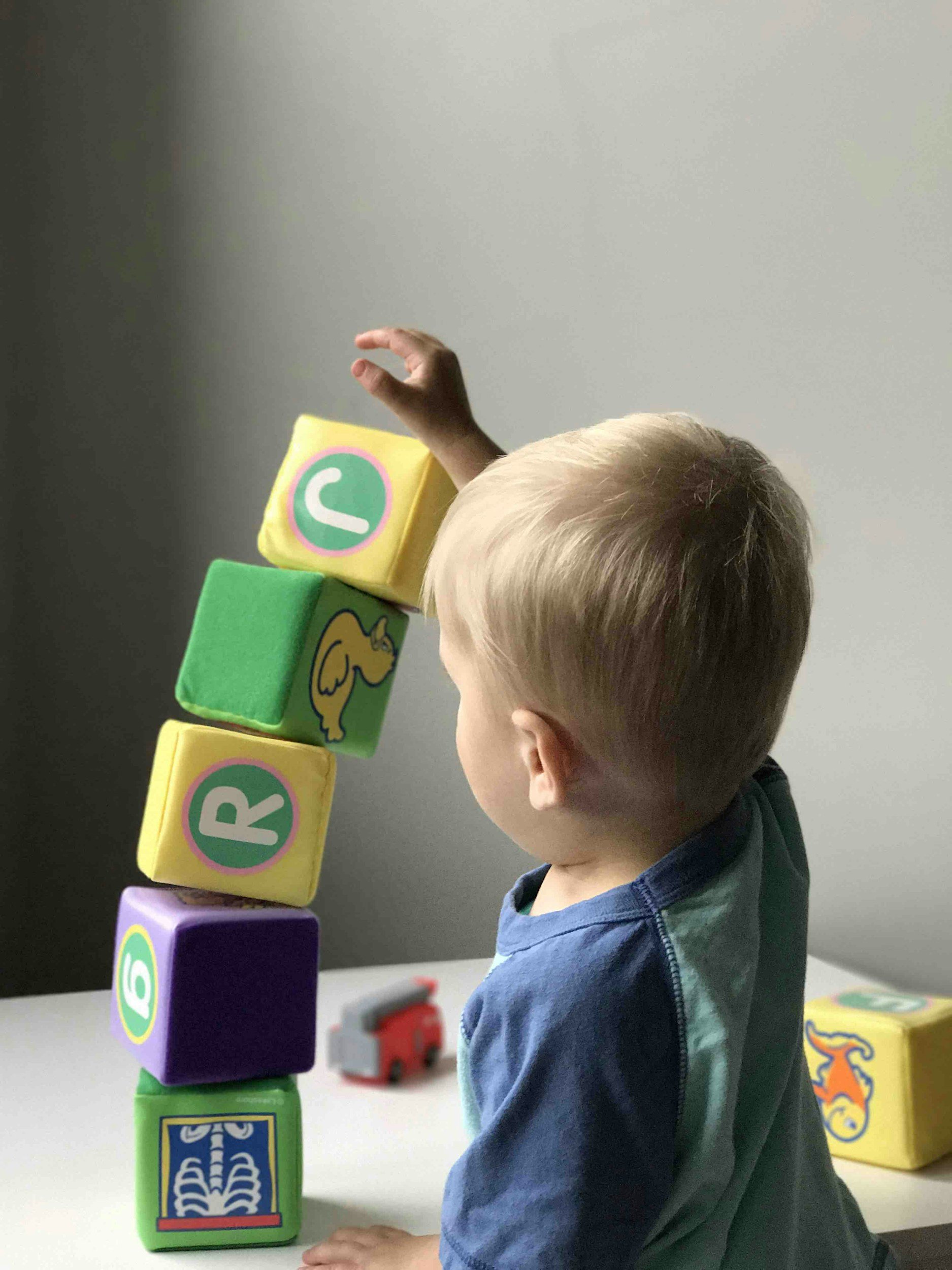
Cognitive Development
Building with blocks engages children's problem-solving skills as they figure out how to create stable structures. It also promotes spatial reasoning as kids learn about shapes, sizes, and how objects fit together in three-dimensional space. Block play naturally incorporates early math concepts like sorting, counting, and understanding geometric shapes.
Physical Development
Manipulating blocks helps refine both fine and gross motor skills. Grasping, stacking, and balancing blocks develops hand-eye coordination and dexterity. Larger block play involving reaching, stretching, and moving around structures supports gross motor development.
Social-Emotional Growth
When children build with blocks together, they learn valuable social skills like sharing, turn-taking, and collaboration. Block play also boosts self-esteem as kids see their ideas come to life through their creations. The open-ended nature of blocks allows for self-expression and creativity.
Language Development
Block play naturally elicits descriptive language as children discuss their structures and building process. It's an opportunity for kids to learn and use spatial vocabulary words like "above," "below," "next to," etc. Describing block creations also supports narrative skills.
STEM Skills
Playing with blocks introduces early engineering and architectural concepts. Children experiment with balance, stability, and structural integrity. This hands-on exploration lays a foundation for future interest and aptitude in science, technology, engineering and math fields.
Expert Insights on Sensory Play
Child development specialists, occupational therapists, and educators unanimously emphasize the significance of sensory play in children's overall development,
Dr. Jane Smith, a Child Development Specialist, notes, "Sensory play is fundamental to a child's holistic development. It facilitates the creation of neural connections between sensory experiences and the world around them, nurturing curiosity and instilling a love for learning.”
Sarah Johnson, an Occupational Therapist, highlights the therapeutic aspects: "Integrating sensory play into daily routines can significantly enhance a child's ability to self-regulate and manage sensory processing challenges. It provides a natural and enjoyable way for children to build resilience and adaptability."
Emily Davis, an Early Childhood Educator, shares her perspective: "In educational settings, we recognize the profound impact of sensory play on cognitive, physical, and social-emotional growth. Our goal is to craft sensory-rich environments that encourage exploration, foster discovery, and support each child's unique developmental journey."
By understanding the multifaceted benefits of sensory play and implementing age-appropriate activities, parents, caregivers, and educators can provide children with invaluable opportunities for growth and learning. Sensory play is not merely an entertaining pastime; it is a fundamental component of childhood development, laying the groundwork for future learning, creativity, and emotional well-being. Through thoughtful incorporation of sensory experiences into daily life, we can support children in building a strong foundation for lifelong learning and adaptability.
For more tools to support your child's growth and development, explore our Infant Growth Calculator, Infant Milestone Calculator, Toddler Growth Calculator, and Toddler Milestone Calculator.

